Future Gold Coast: campaign seeks new narrative for changing Glitter Strip
Fifteen business and community leaders have outlined their vision for the future of the Glitter Strip as part of the Future Gold Coast campaign. Read what they had to say.
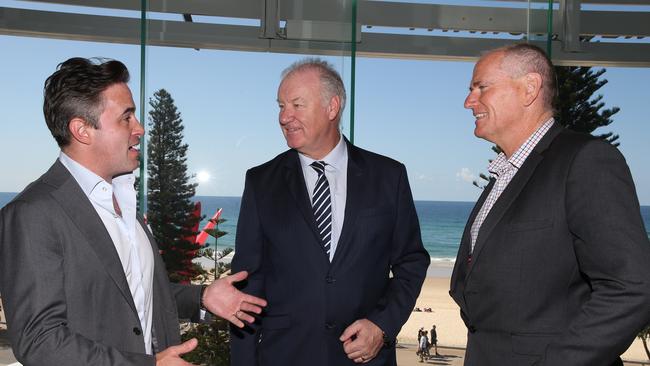
Business
Don't miss out on the headlines from Business. Followed categories will be added to My News.
FIFTEEN business and community leaders have outlined their vision for the future of the Glitter Strip as part of the Future Gold Coast campaign.
IT IS ALL ABOUT THE M1, STUPID
Improvements to the transport network were the priority most often cited by the business and community leaders. This was closely followed by an event calendar to drive tourism and diversifying the economy beyond property and tourism.
Queensland Airports chief executive Chris Mills said connectivity had to come “first, second and third”.
“The M1 and light rail are critical. They are not just nice things to have; we need them fixed,” Mr Mills said.
“Because if you fly into Gold Coast Airport in the morning and you head onto the M1 you hit a traffic jam and it is the same if you are trying to get down there in the afternoon.”
Mr Mills said Brisbane Airport had a rail service when it reached 12 million passengers.
“We can’t afford to wait until it is too late,” he said.
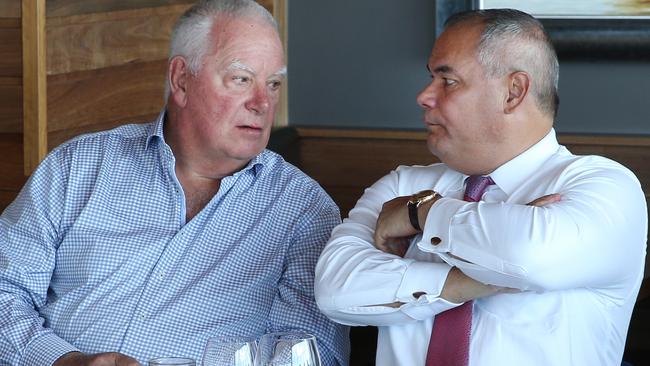
SUBSCRIBE TO THE BULLETIN: $5 A MONTH FOR THE FIRST THREE MONTHS
Star Queensland managing director Geoff Hogg said southeast Queensland’s mooted bid to host the 2032 Summer Olympics could be a catalyst for further improvements to infrastructure, similar to the Commonwealth Games.
“You could not host the 2032 Olympics and not sort out the M1. The number of teams and athletes that would be staying on the Gold Coast and the need to move between the cities (Brisbane and the Gold Coast) makes that fundamental,” Mr Hogg said.
“If you look at infrastructure investment over the next 25 years, most of that has to be done before 2032. We have to say we support it (the Olympic bid) but only if the M1 is addressed. It goes back to our number one issue.”
EVENTS, ALL DAY, EVERY DAY
Outspoken Gold Coast business figure Tony Cochrane is blunt when it comes to his assessment of our events sector.
“Don’t think we are out there with the world’s best practice (for events) … we are not. We are so far at the back of the field it is not funny,” Mr Cochrane said.
“All of you who work in industries that benefit from events will know that events drive tourist numbers.
“They fill hotel rooms, put people in taxis and restaurants and this is a great city with a great opportunity to evaluate and work hard in that space.”
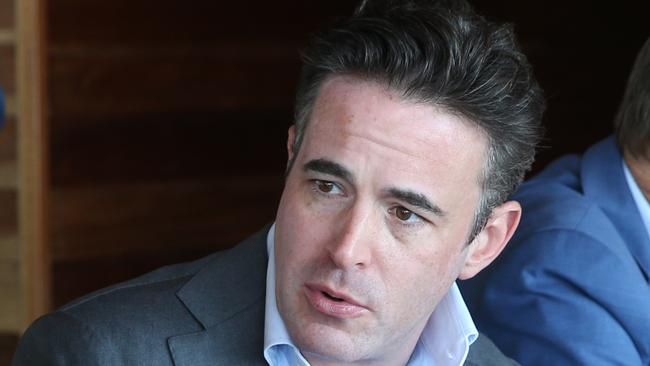
But Mr Cochrane said the Gold Coast had “dropped the ball” and fallen behind over the past 10 years.
He cited the Texas Government in the US as a model for investment in the events space.
“Last year I worked with the Texas Government for their event fund,” he said.
“That Government allocates $390 million each year on attracting events.
“They anticipate in their forward projections they can have that number at more than $550 million per annum.”
He said the Gold Coast needed to show the same commitment to event funding if it wanted to secure its place as Australia’s favourite destination.
OUT WITH THE OLD ECONOMY (SORT OF) AND IN WITH THE NEW
Southern Cross University’s chief marketing officer Dean Gould said the final event of Gold Coast Business Week earlier this year was a snapshot of how far the city had come in terms of the diversification of the economy.
“If that event had been held 10 years ago it would have been full of tourism operators and property industry people,” Mr Gould said.
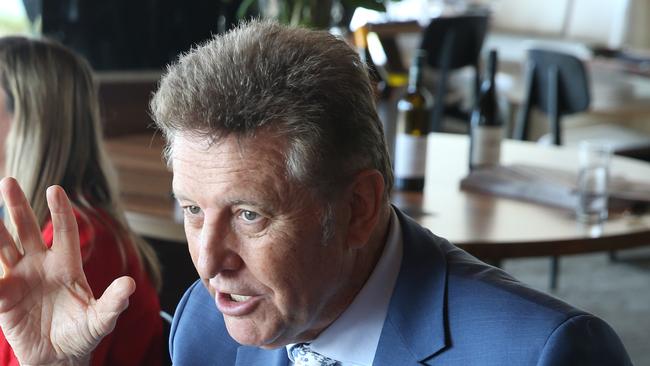
“What I saw was most of the audience was under 40, there were digital businesses, app developers, lots of different people who have 21st century roles. And that is where education can make such a difference to this city.”
Mr Gould said many people attending university these days had not come straight from high school.
“The average age of a Southern Cross University student is 27. Even at Griffith University it is 50-50 between school and non-school leavers,” he said.
“People tend to think of students being school leavers, but the majority of our students have spent time in the workforce and are making the decision to change careers through education.
“It is digital business, health informatics, spatial mapping and engineering and marine-based data science. These are 21st century careers with transferable skills. Even tourism now is digitally based.”
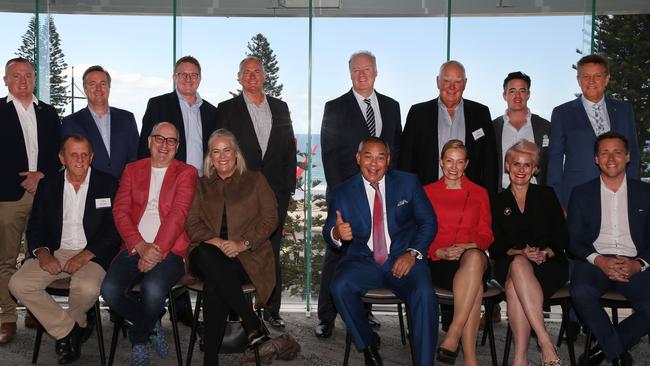
Mr Gould sounded a warning over the foreign student market. He said the messaging was wrong: the city needs to sell “high-quality education” first and the lifestyle second.
“People coming in from China or Vietnam are spending tens of thousands of dollars to be here and they need high-quality educational outcomes. It is not enough to say, hey come here and have a great time on the beach.
“It is a counter-productive message in the first instance. In the first instance (the focus) has to be on high-quality educational outcomes.”
Gold Coast Titans co-owner Rebecca Frizelle said education, along with health, were critical to the maturity of the jobs market.
“We need to focus more on education and health because that is such a massive industry on its own,” she said.
“If I can steal from Bernard Salt, we can stop riding the economic rollercoaster we have been on for so many years by focusing on those industries.”
SO, WHAT IS THERE TO DO ON THE GC ANYWAY?
Village Roadshow CEO Clark Kirby said whenever people visited him from Melbourne he felt like a “travel agent”.
“When they come here they don’t necessarily know where to go,” he said.
“I’m essentially a travel agent putting together these itineraries. When they get a little taste, they say, please tell me where else we can go?”
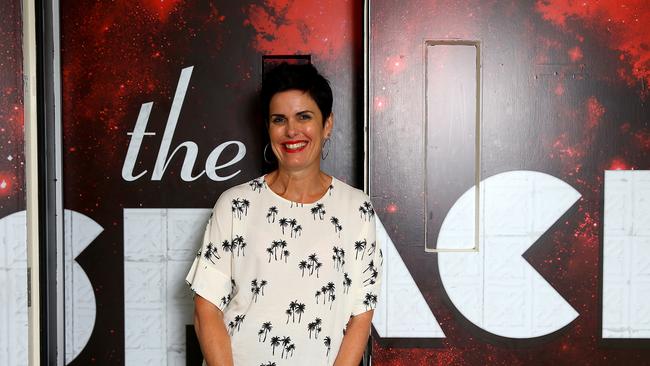
Mr Hogg said the Gold Coast was being outdone by other destinations for the Sydney and Melbourne tourist dollar when it came to food and culture.
“One thing we don’t sell well is the dining and food. Over the past five or 10 years our food has risen to a very, very high level. International tourists when they come to the Gold Coast are blown away with choices.”
But, Mr Hogg said, getting those same tourists to come for the food and culture in the first place was a different story. “We need to be selling our food, art and culture because that is what people from Sydney and Melbourne are looking for on a weekend. At the moment we’re being outdone by Adelaide or somewhere else.”
Home of the Arts CEO Criena Gehrke said Gold Coasters needed to become proud ambassadors for our arts and culture scene.
She said the level of investment, at about $30 per head, was strong but community backing was lacking.
“Don’t dis ourselves,” she said.
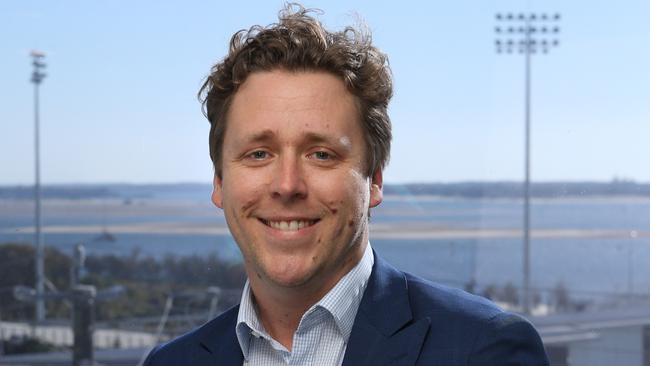
“Actually stand up and say proudly, I’m of the Gold Coast. I’m a proud Gold Coaster. Our artists and community are engaging with arts and culture in a different way to anywhere else in Australia. Be proud, promote the place and buy a ticket.”
Ms Gehrke said investment in the arts was reaping rewards for the Gold Coast.
“The level of investment that is happening has been quite extraordinary. And what we are seeing is a trend of work being made here on the Gold Coast by local artists.”
Mayor Tom Tate said he wanted to push the envelope with the next building for HOTA.
“I want to go towards digital. The next building I want people to walk in and be able to go into a 3D room and be able to say hello to the Mona Lisa. I want to go to that level of technology.”
IT IS OK TO SAY ‘NO’:
Urbis Gold Coast director of planning Matt Schneider said saying “no” could be a good thing.
“We are at an interesting junction. That gives us an opportunity to think about what the next 60 years looks like,” he said. “I think it is really important that we don’t move away from where we have come from.”
Mr Schneider said the city’s “open for business” mantra, driven by Cr Tate, was important but added a caveat.
“We need a slight refinement and that is to not say yes to everything,” he said.
“Let’s say yes to the things that are clearly aligned with our city narrative but then let’s say no to the things that aren’t.”


